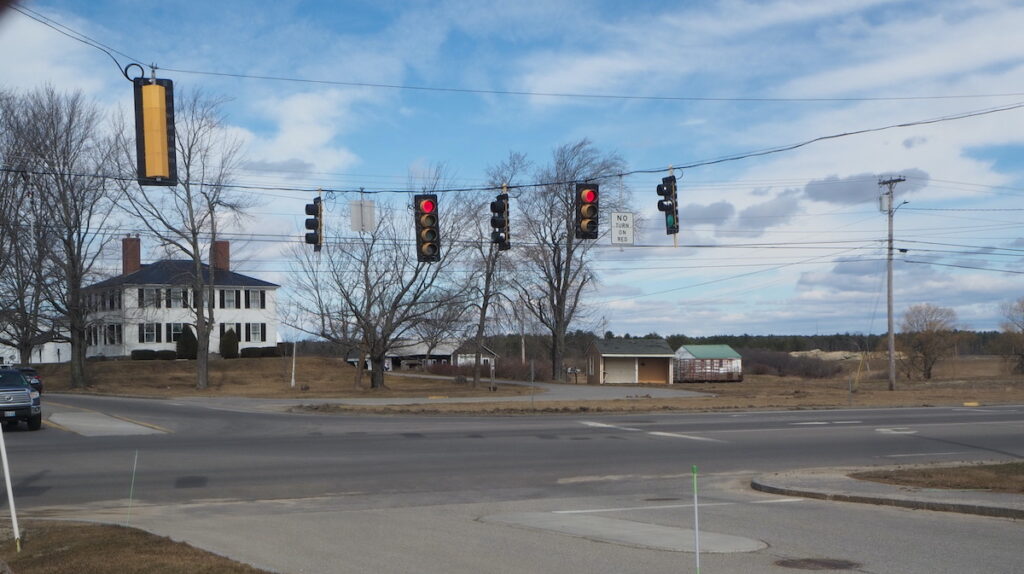At the last Town Council meeting, a proposal was discussed to rezone farmland at the intersection of Routes 25 and 237 in the Mosher’s Corner area where public water and sewer are located, from rural to agricultural industrial as proposed by Gorham’s Comprehensive Plan in 2016. The current proposal would bring this area into compliance with the Town’s 2016 Comprehensive Plan. According to Tom Poirier, “The proposed changes continue to support agricultural uses in the area and it would provide future opportunities for future commercial uses where there is public water and sewer.”

Mosher’s Corner, the intersection of Routes 25 and 237 in Gorham
The properties for the rezone affect a number of land owners. The largest properties are owned by Abbott Mosher, Albert Mosher, Stephen Rines, and Dale Rines, all of whom are descended from the Town’s earliest settlers. Captain John Phinney was the first settler in Gorham in 1736 and Daniel Mosher was among the second or third settler arriving in 1738. Mosher’s ancestors started the farm at the intersection of Routes 25 and 237, an area now known as Mosher’s Corner in 1770. Both of the Rines are descended from Captain Phinney and Walnut Crest Farm has belonged to the Rines Family since the 1890’s. The two properties abut Shaw Cherry Hill Farm, a new non-profit zone. Walnut Crest Farm was formerly a dairy farm that had previously raised beef, sheep and horses. Today it produces hay and leases the pasture to Ben Hartwell who raises cattle. Mosher transitioned to growing corn in 1987 and the farm also harvests hay. A grandson has expressed interest in taking over the farm.
Rines and Mosher spoke about some of their concerns regarding the proposed rezoning as drafted, as did Town Councilor Phil Gagnon.
Poirier noted that the current rural district zone permits farming and residential lots over 60,000 sq. ft. The proposed rezoning would allow farming to continue. However, if the land was no longer being farmed, it would be zoned commercial but not residential. Property could not be sold for new housing if farming was discontinued.
The Town plans an amendment to the proposal to allow accessory residential dwellings which would be incidental to farm use. Much of Rines’ property is protected by the Maine Farmland Trust easement which means the property could only be used for farming.
The proposal will be discussed at the Town Council meeting in April.


